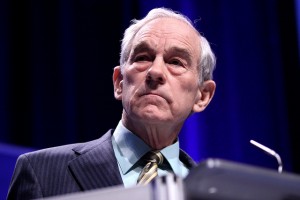U.S. Republican presidential candidate Ron Paul’s libertarian platform, centred primarily on cutting taxes, drastically limiting the federal government’s size and role and protecting individual constitutional rights, is radically different from that of the other Republican hopefuls. Although entering the contest for the nomination as an underdog, Texas Congressman Paul is currently enjoying an increasing electoral success, while his fundraising campaign is also gaining momentum. In the Iowa caucuses, Ron Paul placed in third place, while in the New Hampshire primary elections, he came in second after Mitt Romney, winning around 17% of the votes. Congressman Paul is also in the top three candidates regarding fundraising results.
His success is all the more unexpected since he has been systematically neglected by the media, even during some of the debates. In October 2011, the Pew Research Center’s Project for Excellence in Journalism released the results of a survey which revealed that the Texas Congressmen had received the least media attention of all presidential candidates and that, in fact, between May 2nd and October 9th 2011, Paul appeared as the “primary newsmaker in only 2% of all election stories.” Both liberal and conservative media’s lack of coverage of the Congressman’s campaign and ideas seem to stem primarily from their apparent disbelief that, given his political ideas, he could obtain the Republican Party nomination and that he could represent a viable candidate for the Republican Party. Certain journalists, such as CNN reporter Dana Bash, have even expressed concerns that Ron Paul could continue his campaign into the spring and summer of 2012, jeopardising the chances of the future nominee– who, according to her, could never be Paul. Statements like hers seem to suggest that the media is not only strategically avoiding Congressman Paul, but actively trying to discredit him as a potential candidate. In several debates, Ron Paul has been silenced by the moderators, who have addressed far less questions to him than to all other candidates.
Although mainstream media seems to purposefully ignore or oppose Ron Paul, some parts of the Republican electorate are clearly heading in a different direction by supporting him. But why are Paul’s libertarian ideas gaining momentum now, given that the Texas Congressman made highly unsuccessful bids for the presidential nomination in 1988 and 2008? Well, mostly because times have changed.
Paul’s current placing on the electoral podium sends an important message about the American presidential elections: U.S. voters are disillusioned with the same old promises that both Republican and Democratic candidates have to offer and are willing to support alternative and even radical new political solutions. But Ron Paul offers more than simply an alternative. He is also one of the few congressmen whose platform has remained consistent and who has had the courage to oppose proposals that contradict his beliefs, even when he was the only one taking a different stance. During the debates, if and whenever he is given the opportunity to respond, Congressman Paul not only offers sharp, consistent and honest responses, but he refuses to engage in the political attacks and chicaneries that the other candidates have initiated against one another. Paul may not be a great public speaker, but it seems that, as more and more American citizens become disenchanted with purebred politicians delivering recycled political lines, he just might be the relatable and straightforward character Americans are looking for.
It is ultimately unlikely that Mr. Paul will be elected as the Republican candidate. However, his electoral success in Iowa and New Hampshire, in spite of the media’s refusal to cover him, sends an important message about American voters: a significant number are willing to endorse alternative political ideas, even radical ones such as Paul’s. Both the Republican and Democratic Parties should not simply brush off this popular tendency, but strive to respond to the people’s discontent. Otherwise, this disenchantment with mainstream politicians could facilitate the rise of various alternative political actors and of new political entities more capable of meeting Americans’ demands.




